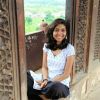
- Place
Delhi Memory Archive
Given the size and diversity of the capital city of India, Delhi, it makes the creation of a collection on the diversity of urban life and lived heritage a complex task. As migration, mobility and socio-architectural-political transformations lead to an altered cityscape, insular community and individual lives in the ‘mobile’ age makes it easier to ‘manufacture’ memories. One way of encapsulating the varied urban experiences of the city is to move away from the existing authorised Heritage Discourse led by monuments, and instead look at the relational and intangible aspects of the everyday urban experience.
The Neighbourhood Museum Programme of the Centre for Community Knowledge (CCK) is an initiative to create a Delhi Memory Archive through smaller and more focused neighbourhood documentation initiatives. With a mandate to document the lived everyday in Delhi, it does so by using memory, local history and the communication arts. This programme, in the form of pop-up museums, travels around different neighbourhoods of the megacity, with associated temporary contributed exhibitions and public memory sharing forum. By highlighting oral narratives about the diverse living and working experiences of the city, the relational and dialogic take precedence over the static, and is an attempt to transfer the agency of memory to the residents of the city.
Who gets to tell the stories about the community, and the types of stories that are told are therefore fundamentally political questions that cannot assume the rights of one group to name and represent the area for all other groups. Such an approach also rejects the idea that what is important to know has already been determined, provided the learner is willing, observant and has a strong alternative ethos. Besides, the crucial thing for learners is that there are real people to speak to, real people to work with, and it’s based in their city.




